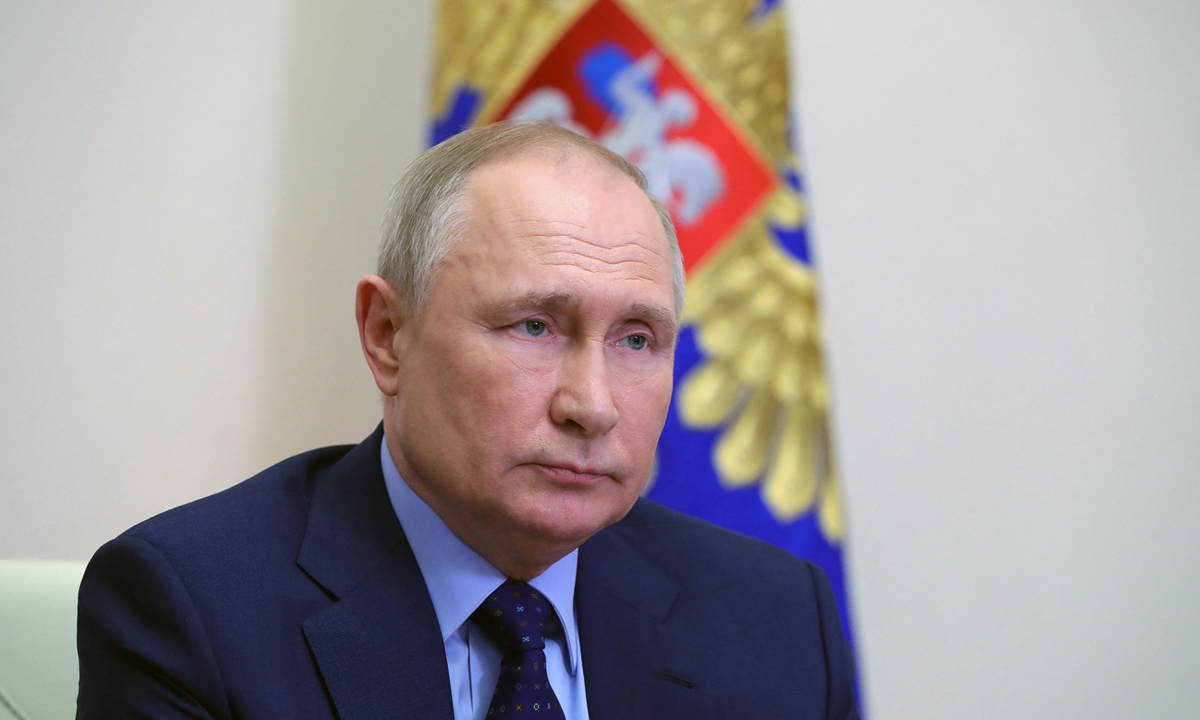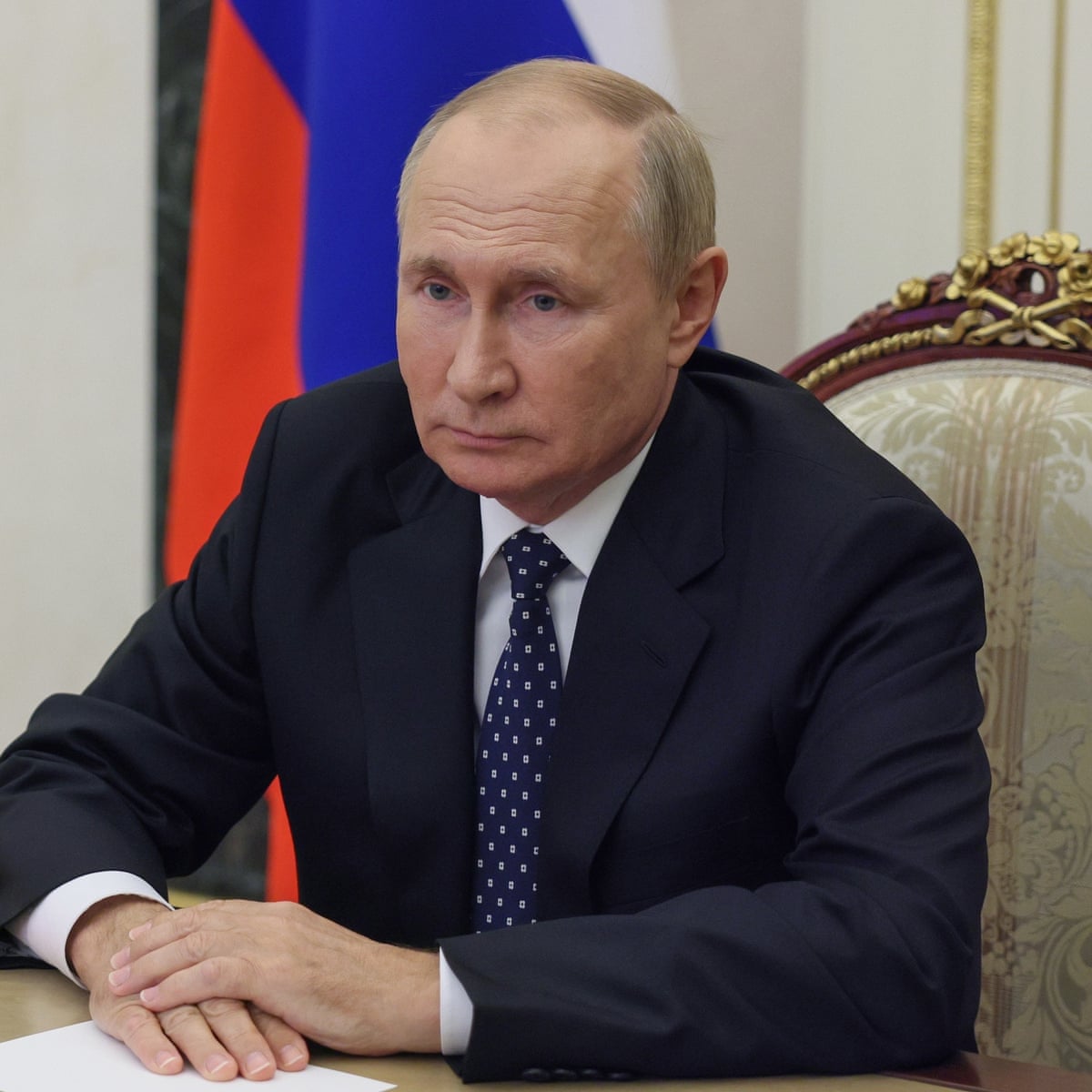Putin Mutiny Today - We use cookies and other tracking technologies to improve your browsing experience on our site, display personalized content and targeted advertising, analyze site traffic and understand where our audience comes from. To learn more or opt out, read our cookie policy. Please also read our Privacy Notice and Terms of Use, effective December 20, 2019.
As Russia's war in Ukraine looks increasingly disastrous, speculation has grown that a misstep by President Vladimir Putin could be the cause of his downfall. Many scholars and experts predicted that disillusionment with the cost of the war and severe economic sanctions could lead to the collapse of his regime.
Putin Mutiny Today

"Vladimir Putin's attack on Ukraine will bring him and his friends down," David Rothkopf told the Daily Beast. "If history is any guide, his excesses and miscalculations, his weaknesses as a strategist and his character flaws will undo him."
First On Cnn: Us Intelligence Indicates Russia Preparing Operation To Justify Invasion Of Ukraine
But what events could topple Putin? And how likely are they in the foreseeable future?
Learn the history of the conflict and what Russian President Vladimir Putin has said about his military goals.
A Russian invasion could cause a conflict between the nuclear world powers. This destabilizes the region and terrorizes Ukrainian citizens. It can also affect inflation, gas prices and the global economy.
The United States and its European allies have responded to Putin's aggression with unprecedented sanctions, but have no plans to send troops to Ukraine for good reasons.
Putin The Poisoner Is An Imperialist More At Home In The 19th Century Than This One
The best studies of how authoritarians fall point to two possible scenarios: a military coup or a popular uprising. During the Cold War, coups were the most common way to remove dictators from office, such as the overthrow of Argentina's Juan Peron in 1955. But since the 90s, there have been changes in the way authoritarians are removed. Coups are on the decline, while popular uprisings, such as the Arab Spring uprisings and the "color revolutions" in the former Soviet Union, are on the rise.
For all the speculation about Putin losing power, none of these developments seem particularly likely in Russia — even after the disastrous initial invasion of Ukraine. This is not a little because Putin prepared for them as well as for any dictator.
Over the past two decades, the Russian leader and his cohorts have structured almost every major element of the Russian state with a view to limiting threats to the regime. Putin has arrested or killed leading dissidents, instilled fear in the general public and made the country's ruling class dependent on his goodwill for their continued prosperity. His ability to rapidly escalate repression during the current crisis in response to anti-war protests – using tactics ranging from mass arrests during protests to media shutdowns opposition media until the closure of social media platforms – it is a demonstration of the regime's strengths.

"Putin has been preparing for this situation for a long time and has taken many concerted actions to ensure that he is not vulnerable," said Adam Casey, a University of Michigan doctoral student who studies coup history. in Russia and the former communist bloc. .
Kremlin Elites Are Poised For Putin's Grip On Power To Falter
However, at the same time, researchers of authoritarianism and Russian politics are not completely ready to rule out the fall of Putin. Hardly impossible; The experts I spoke to generally believe that the invasion of Ukraine was a strategic mistake that raised the risk of both a coup and a revolution, even if their likelihood remains low in absolute terms.
“Before [the war] the risk from any of these threats was close to zero. And now the risk is definitely higher both ways,” says Brian Taylor, Syracuse University professor and author of The Putinism Code.
The Ukrainians and their Western supporters cannot count on the fall of Putin. But if the war turns out to be even more disastrous for the Russian president than it seems, history tells us that there are ways that even the staunchest of autocrats can lose power.
In a recent appearance on Fox News, Sen. Lindsey Graham (R-SC) stumbled on what he saw as a solution to the war in Ukraine -- for someone, perhaps "in the Russian military," to remove Vladimir Putin by assassination or coup d'état. . "The only way this is going to end is for someone in Russia to release this guy," the senator claimed.
Analysis: War, Economy Could Weaken Putin's Place As Leader
He should not hope. A military uprising against Putin is more possible now than it was before the invasion of Ukraine, but the odds against it are still long.
Naunihal Singh is one of the world's leading researchers of military coups. His 2017 book The Seizure of Power uses statistical analysis, game theory and historical case studies to try to understand what causes coups and what makes them possible.
Singh believes that militaries are most likely to attempt coups in low-income countries, in regimes that are neither fully democratic nor fully autocratic, and in countries with recent coups. Neither of these conditions is suitable for today's Russia, a firmly authoritarian middle-income country that has not had a coup attempt since the early 1990s.

But at the same time, wars like Putin's can create resentment and fear in the ranks, precisely the conditions in which we have seen coups in other countries. "There are reasons why Putin may be increasingly concerned about this," says Singh, pointing to the coups in Mali in 2012 and in Burkina Faso earlier this year as precedents. Indeed, a 2017 study of civil wars found that coups are more likely to occur during conflicts when governments face stronger opponents, suggesting that casualties and losses during war increase the likelihood of military rebellions.
Expert: Putin Has Become An Information Hostage Of The Fsb
According to Singh, the conflict in Ukraine raises the possibility of a coup in Russia for two reasons: it could weaken the military leadership's loyalty to Putin and it could provide an unusual opportunity to plot them actions against him.
The motive for Russian officials to stage a coup would be quite simple: an expensive campaign in Ukraine is becoming unpopular with key military personnel and even threatens them personally.
Leading Russian journalists and experts warn that Putin is surrounded by a bubble of hawkish dealmakers who feed his nationalist obsession and tell him only what he wants to hear. This very small group came up with an invasion plan that called for minimal resistance from the Ukrainian military, which allowed Russia to quickly capture Kyiv and install a puppet regime.
This plan both underestimated Ukraine's resolve and overestimated the competence of the Russian military, resulting in significant Russian casualties and a failed early push towards the Ukrainian capital. Since then, Russian forces have been embroiled in a slow and costly conflict characterized by horrific bombings of populated areas. The international sanctions have turned out to be much tougher than the Kremlin expected, sending the Russian economy into a tailspin and in particular punishing its elite for their ability to trade abroad.
Navalny Is Unlikely To Topple An Entrenched Putin
According to Farida Rustamova, a Russian journalist well-versed in the Kremlin, senior civilian officials in the Russian government are already unhappy with the war and its economic consequences. One can only imagine the mood among the military officers, few of whom seem to have been informed of the war plans in advance - and many of whom are now tasked with mass killing Ukrainians.
Moreover it is what can often lead to coups: personal insecurity among senior generals and intelligence officers. According to Andrei Soldatov, a Russia expert at the Center for European Policy Analysis, Putin is punishing high-ranking officers in the FSB — the KGB's successor agency — for the war's early failures. Soldatov's sources report that Putin has placed the head of the FSB's external intelligence, Sergei Beseda (as well as his deputy), under house arrest.
Such reports are difficult to verify. But they are consistent with Singh's prediction that poor performance in wars usually leads autocrats to look for scapegoats — and that fear of retribution may convince some of Russia's security elite that the -the best way to protect themselves is to get rid of Putin.

Soldiers of the Roshvardiya (Russian National Guard) detain a demonstrator during a protest in Moscow against Russia's invasion of Ukraine on February 24. Alexander Niemenov/AFP via Getty Images
Restive Caucasus Sees Signs Of Discontent With Putin's War
"I don't think Putin will kill them, but they will still have to live in fear and humiliation," says Singh. "They will fear for their own future."
The conflict also provides an outlet for disgruntled officials. In authoritarian countries like Russia, genders do not always have many opportunities to talk to each other without fear of surveillance or informants. Wars change this, at least somewhat.
Now there are "many good reasons for the generals to be in the room with the major players and even avoid state surveillance, as they would want to avoid NATO and US surveillance," Singh explains.
However, coups are difficult to carry out. And the Russian security state, in particular, is organized around frustration.
Putin Sparks Mutiny After Kids Forced To March In Z Formation And Pose With Rifles
Contrary to most people's expectations, successful military coups tend to be fairly bloodless; smart plotters usually don't start when they do
Putin comments today, putin statement today, putin today, putin news today, news on putin today, where is putin today, putin and russia today, putin russia today, russia news today putin, mr putin today, putin latest news today, putin speech today
0 Comments